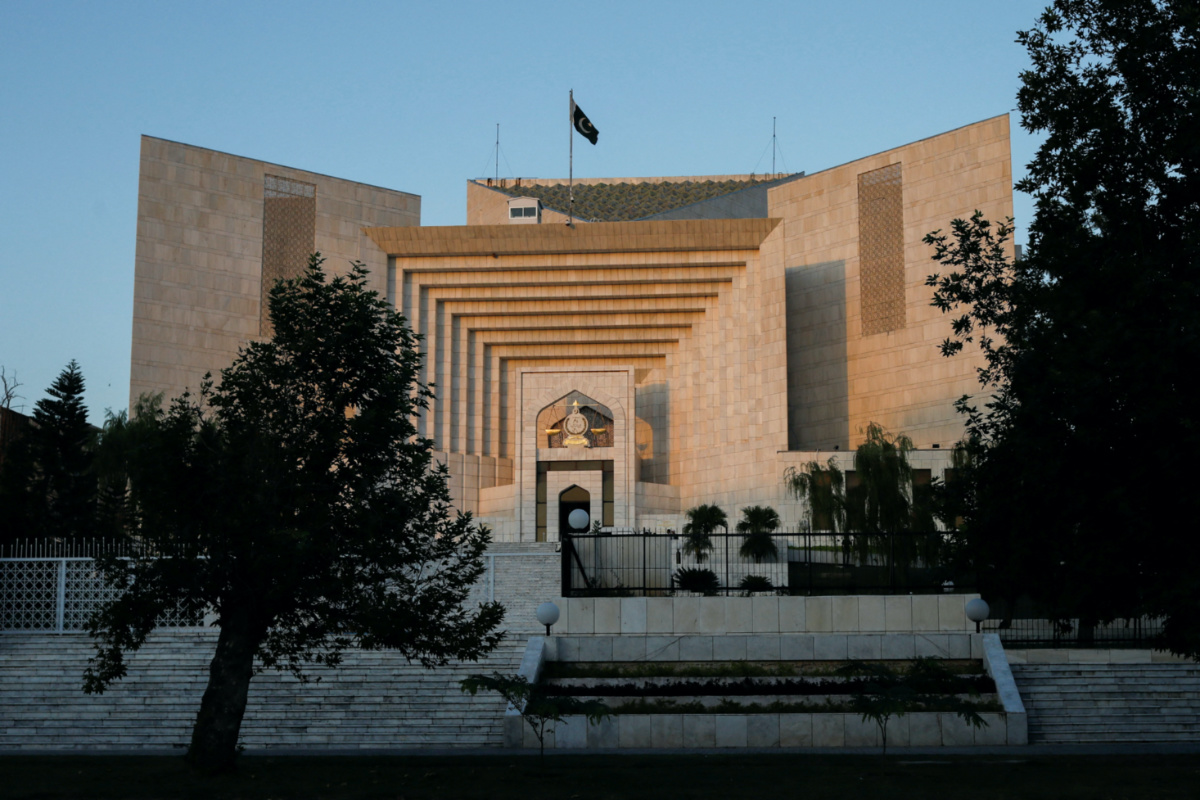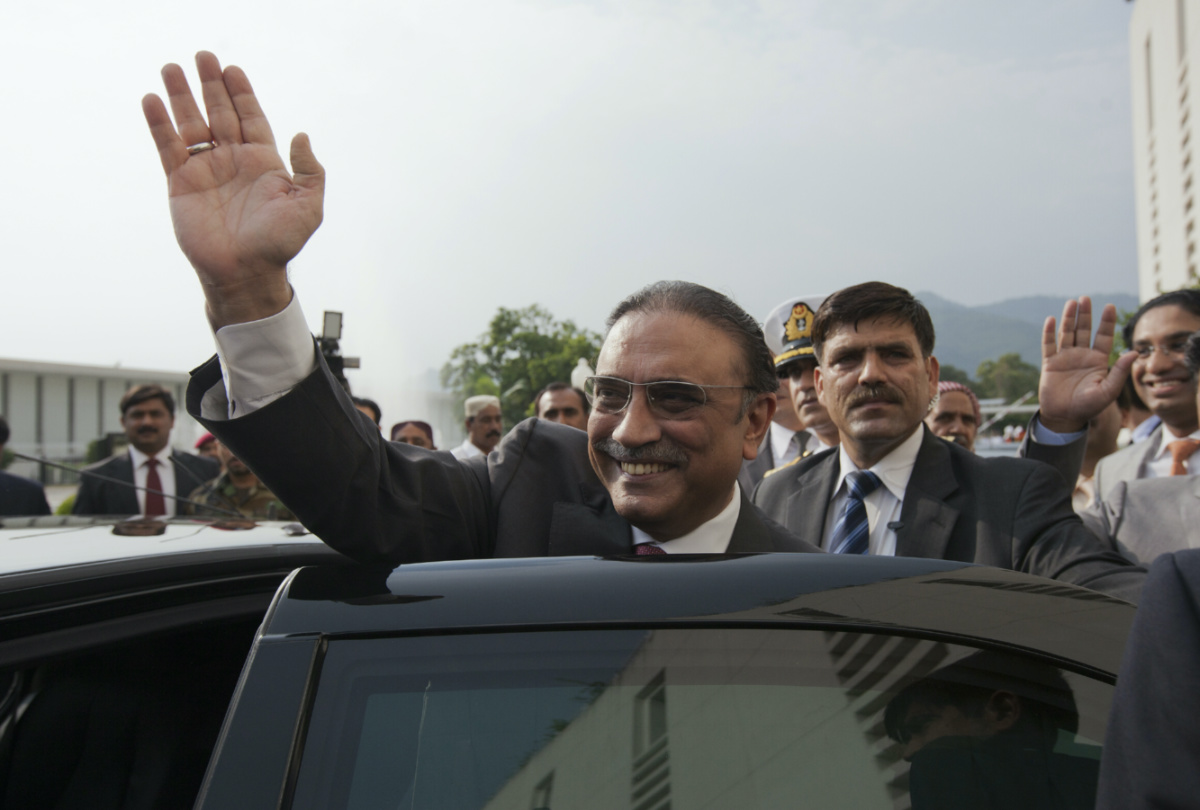Islamabad, Pakistan
Reuters
Pakistan‘s Supreme Court ruled last week that former Prime Minister Zulfikar Ali Bhutto, who was hanged 44 year ago after being convicted of murder, didn’t get a fair trial.
Bhutto, the founder of the Pakistan Peoples Party (PPP) now run by his grandson and former foreign minister Bilawal Bhutto Zardari, was hanged in 1979 after a trial under the military regime of late General Zia-ul-Haq.

A view of the Supreme Court of Pakistan building during sunset hours in Islamabad, Pakistan, on 3rd October, 2023. PICTURE: Reuters/Akhtar Soomro/File photo
“We didn’t find that the fair trial and due process requirements were met,” said Chief Justice Qazi Faez Isa in remarks telecast live of the ruling that he said was a unanimous decision by a nine-member bench headed by him.
Prime Minister Shehbaz Sharif hailed the ruling.
“It is a positive development that a wrong done by a court has been corrected by a court,” he said in a statement from his office.
The ruling came in response to a judicial reference filed by Bhutto Zardari’s father, Asif Ali Zardari, during his tenure as President in 2011. It sought an opinion by the top court on revisiting the death sentence awarded to the PPP founder.
“Our family waited 3 generations to hear these words,” Bhutto Zardari said later in a post on X, formerly known as Twitter.
The court will issue a detailed order later.
“It is an admission of colossal miscarriage of justice under Zia’s martial law regime,” said Yousuf Nazar, London-based political commentator and a close aide of the late Benazir Bhutto, Zulfikar Ali Bhutto’s daughter and also a former prime minister. She was assassinated in 2007.
Rights groups say Haq’s 11 years of dictatorship were marked by an assault on democracy, persecution and jailing of PPP workers and public flogging of opponents and critics.
Nazar said the regime also pushed the conservative Muslim nation into extremism and militancy by propping up and backing militant groups to fight a US proxy war against the then Soviet Union in Afghanistan.
“It led to an unprecedented level of support for and patronage of religious extremists at the state level,” he said.

Pakistan‘s outgoing President Asif Ali Zardari waves as he leaves after a farewell ceremony at the President House in Islamabad on 8th September, 2013. PICTURE: Reuters/Mian Khursheed/File photo
Meanwhile in other developments in Pakistan this week, former President Asif Ali Zardari won a second term on Saturday, supported by the ruling coalition in a vote by parliament and regional assemblies, the election presiding officer said.
The role of president is largely ceremonial in Pakistan but Zardari is known as a master of reconciliation and could help the governing coalition partners reach a consensus to steer the broken economy on a stabilisation path ahead of seeking a new IMF bailout.
As president, Zardari will also be the supreme commander of the country’s armed forces, which play an oversized role in making or breaking governments.
Presiding officer Justice Amir Farooq announced the winner in a live TV broadcast.
Zardari got 411 votes, easily defeating the 181 votes cast for nationalist leader Mehmood Khan Achakzai, according to a statement from the parliament.
Achakzai was backed by jailed leader Imran Khan’s party.
We rely on our readers to fund Sight's work - become a financial supporter today!
For more information, head to our Subscriber's page.
The president is elected by votes in the lower and upper house of the parliament and four provincial legislative assemblies.
Zardari is the widower of former Prime Minister Benazir Bhutto and gained political stature after his wife’s assassination in a suicide bombing in December 2007, taking control of the PPP Party, in line with wishes expressed in her will.
He became president in 2008 and served until 2013, a period in which a US special forces raid inside Pakistan found and killed Osama bin Laden in 2011.
Zardari’s greatest achievement during his first term was seen as the building of a rare political consensus on adopting a new legal and political framework to decentralise power and curb the presidential powers wielded by former military leaders.
From the early 1990s to 2004, he spent 11 years in jail on graft charges, which were never proven in any court and that he and his party called military-backed political victimisation, a charge the army denies.






